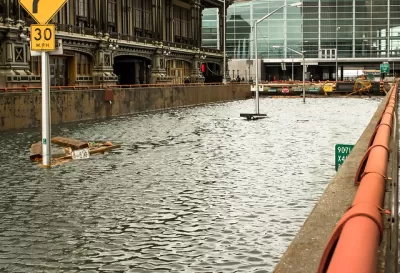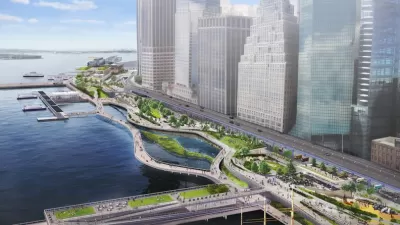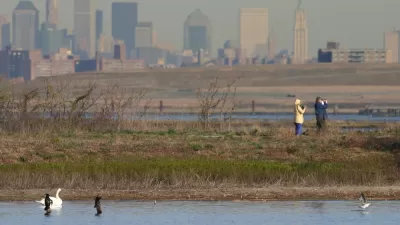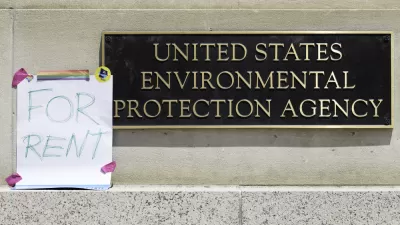The U.S. Army Corps of Engineers was on the verge of proposing a plan to protect New York City from storm surges and sea-level rise. Instead, the city of New York has lost federal support for a path toward climate resilience.

"The federal government has abruptly halted a study of New York City's coastal storm surge preparedness, " reports Jake Offenhartz, "throwing into question the fate of the region's most expansive climate resiliency effort and fueling speculation about politically motivated retribution by the Trump administration."
"The study was launched in 2017 by the U.S. Army Corps of Engineers to evaluate five possible defenses against severe storms and flooding that threaten coastal communities and the New York/New Jersey harbor," according to Offenhartz. After the study was shelved quietly last week, Army Corps officials blamed the decision on a "funding lapse."
Robert Freudenberg, vice president for energy and environment at the Regional Plan Association, is quoted in the article saying the decision is dangerous and unprecedented. Freudenberg also suggests in the article that the decision is motivated by politics. President Trump Tweeted on the subject of the $119 billion stormwall under consideration to protect the city, saying the barrier looks terrible and is "foolish."
A massive 200 Billion Dollar Sea Wall, built around New York to protect it from rare storms, is a costly, foolish & environmentally unfriendly idea that, when needed, probably won’t work anyway. It will also look terrible. Sorry, you’ll just have to get your mops & buckets ready!
— Donald J. Trump (@realDonaldTrump) January 18, 2020
FULL STORY: "Unprecedented and Dangerous": Trump Administration Halts NYC's Most Important Climate Resiliency Study

Study: Maui’s Plan to Convert Vacation Rentals to Long-Term Housing Could Cause Nearly $1 Billion Economic Loss
The plan would reduce visitor accommodation by 25,% resulting in 1,900 jobs lost.

Alabama: Trump Terminates Settlements for Black Communities Harmed By Raw Sewage
Trump deemed the landmark civil rights agreement “illegal DEI and environmental justice policy.”

Why Should We Subsidize Public Transportation?
Many public transit agencies face financial stress due to rising costs, declining fare revenue, and declining subsidies. Transit advocates must provide a strong business case for increasing public transit funding.

Paris Bike Boom Leads to Steep Drop in Air Pollution
The French city’s air quality has improved dramatically in the past 20 years, coinciding with a growth in cycling.

Why Housing Costs More to Build in California Than in Texas
Hard costs like labor and materials combined with ‘soft’ costs such as permitting make building in the San Francisco Bay Area almost three times as costly as in Texas cities.

San Diego County Sees a Rise in Urban Coyotes
San Diego County experiences a rise in urban coyotes, as sightings become prevalent throughout its urban neighbourhoods and surrounding areas.
Urban Design for Planners 1: Software Tools
This six-course series explores essential urban design concepts using open source software and equips planners with the tools they need to participate fully in the urban design process.
Planning for Universal Design
Learn the tools for implementing Universal Design in planning regulations.
Smith Gee Studio
Alamo Area Metropolitan Planning Organization
City of Santa Clarita
Institute for Housing and Urban Development Studies (IHS)
City of Grandview
Harvard GSD Executive Education
Toledo-Lucas County Plan Commissions
Salt Lake City
NYU Wagner Graduate School of Public Service





























